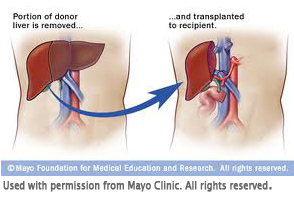Private Fund-Raising Appeals to the Public
"To win donors' sympathy, campaign recipients were painted as morally worthy of donation."
"This, of course, problematically presumes that some individuals are more worthy of medical care than others, violating norms of treating medical care as an entitlement and human right."
"It is ethically problematic to shift to a system of distribution that awards individuals according to perceived moral worthiness or socioeconomic advantage."
Research paper, PLOS One Journal, Hospital for Sick Children, Toronto
 |
These masses of Canadian-sourced crowd-funding campaigns launch in support of recipients of organ transplants asking for financing assistance for drugs, transportation and lost income. The study undertaken by researchers at Toronto's Hospital for Sick Children examined the ethical questions behind this fairly new phenomenon. Over 400 kidney and liver campaigns were placed on GoFundMe alone, emphasizing the financial burden imposed on transplant patients, not covered by medicare.
The researchers concluded through the medium of their study that the system of informal donation requests on the web to cover extra costs result in unequal responses, seemingly unrelated to medical need. The study discovered that those requiring a new liver tended to amass a greater response to their request for donations than those awaiting kidney transplants, and tellingly and unsurprisingly, requests for aid in children's surgeries had a more robust response than those for adults.
At the same time, patients who seek to crowd-fund must sacrifice their privacy in the need to confidingly reveal personal medical and financial information to the public, to give greater emphasis to their need. An ever-increasing trend in these on-line campaigns launched for the most part by family and friends of transplant patients, prompted the study, according to Samantha Anthony, a scientist and social worker at Sick Kids' Hospital.
The purpose of the research was to elicit answers to questions and not, noted Dr.Anthony who led the research, to pass judgement, but with a view to highlighting specific issues. As to the larger picture of who should fund these extra costs imposed by circumstances on transplant patients, that would be "up to society to decide how to distribute scarce resources".
 |
In their pursuit for data on kidney and liver transplant patients whose use of GoFundMe had enabled them to raise funds from the public, 258 kidney cases and 171 liver patients were revealed. Liver patients received more and larger donations on average, and more Facebook shares in comparison to patients awaiting a new kidney. The study discovered of the campaigns that all dwelled on the personal ordeal suffered with such severe illnesses.
Most campaigns requested aid in raising funds to cover costs of attending a hospital distant from where patients lived, for lost income and medication that medicare or private insurance failed to reimburse for. A rough third of campaigners spoke of the recipient they championed as an "amazing person", "lovable", or "kind". An interesting facet of the entire phenomenon is that very few of the crowdfunding requests were critical of the health-care system for patients facing financial risk.
"I have been able to recover completely with a great amount of help from each of you", wrote a Victoria woman as she closed her GoFundMe page, in gratitude to her donors. She had been suffering from end-stage liver disease, when she was deemed a candidate for transplantation, and then she and her spouse faced paying for a three-month stay close to the hospital, located in central Vancouver, one of the most expensive places in Canada.
Labels: GoFundMe, Kidney Transplants, Liver Failure, Medicine, Surgery

0 Comments:
Post a Comment
<< Home